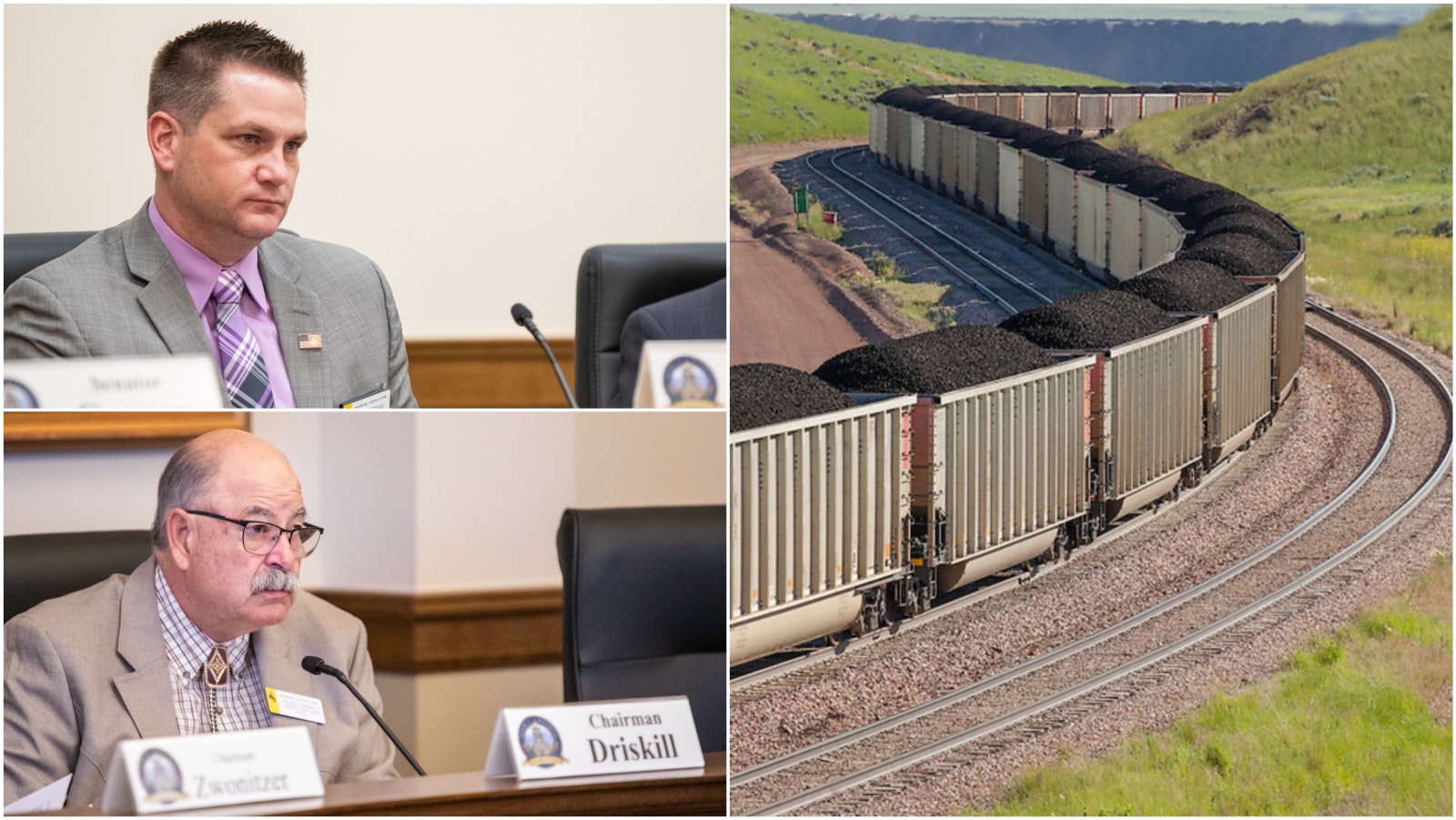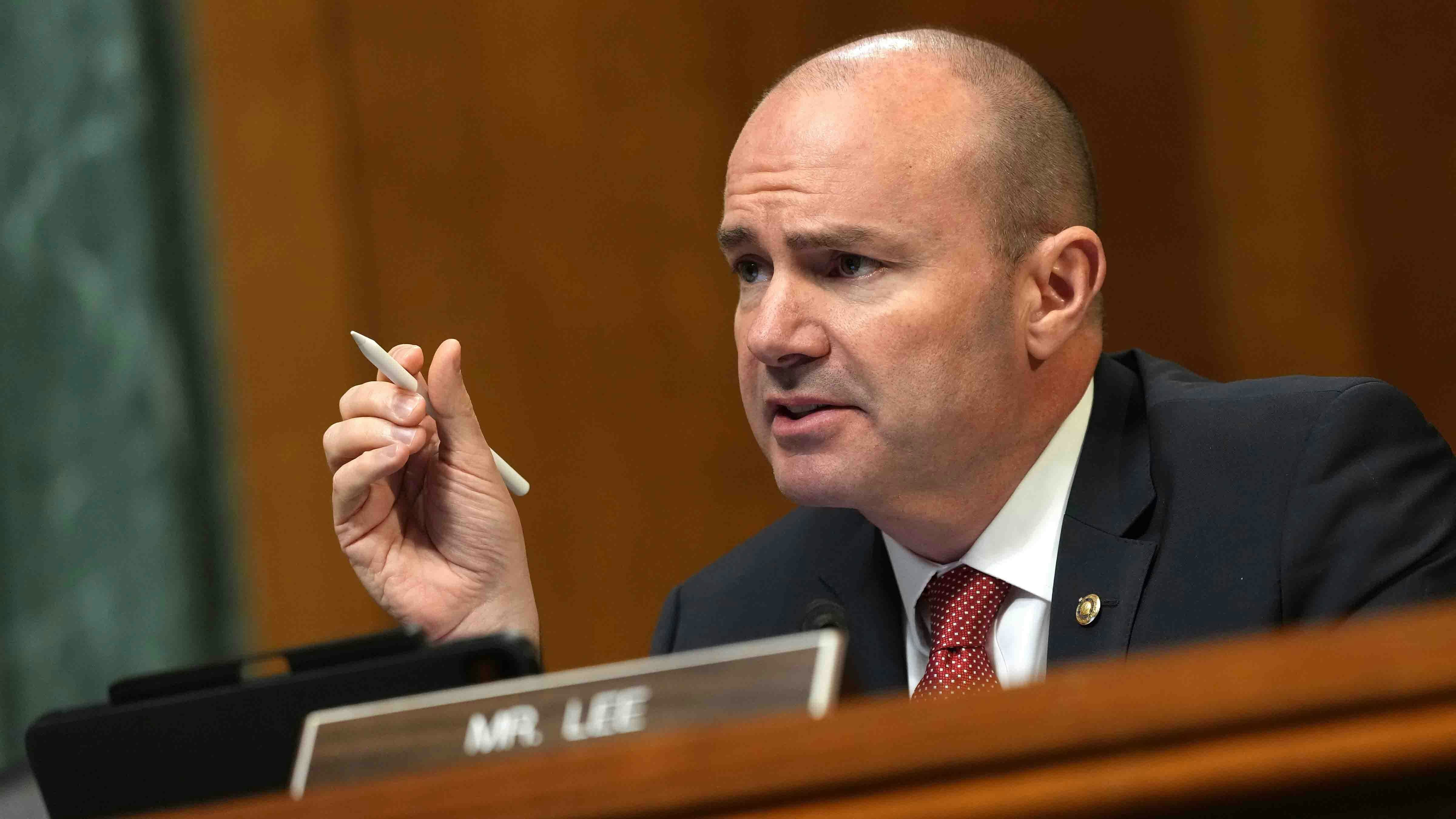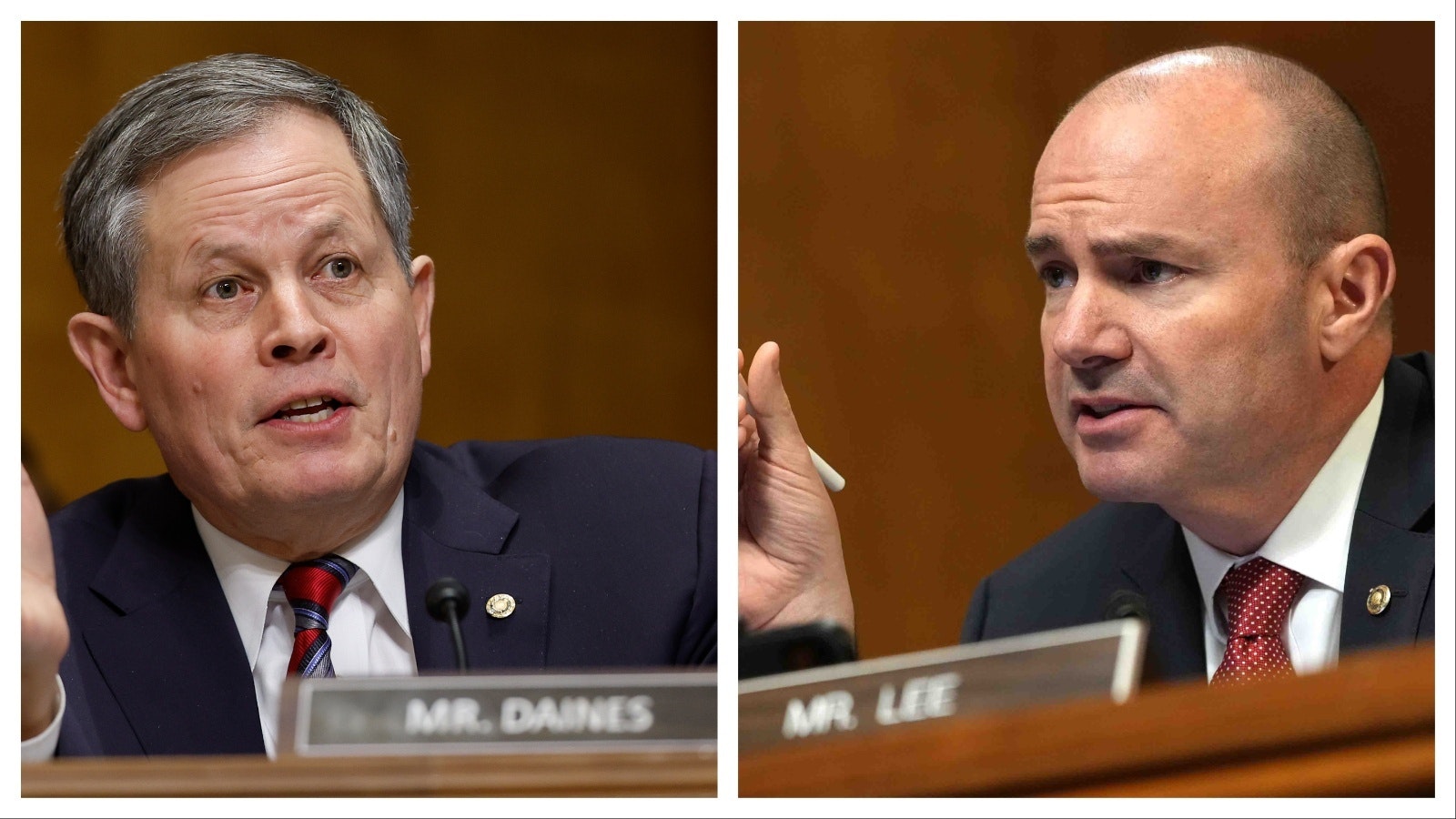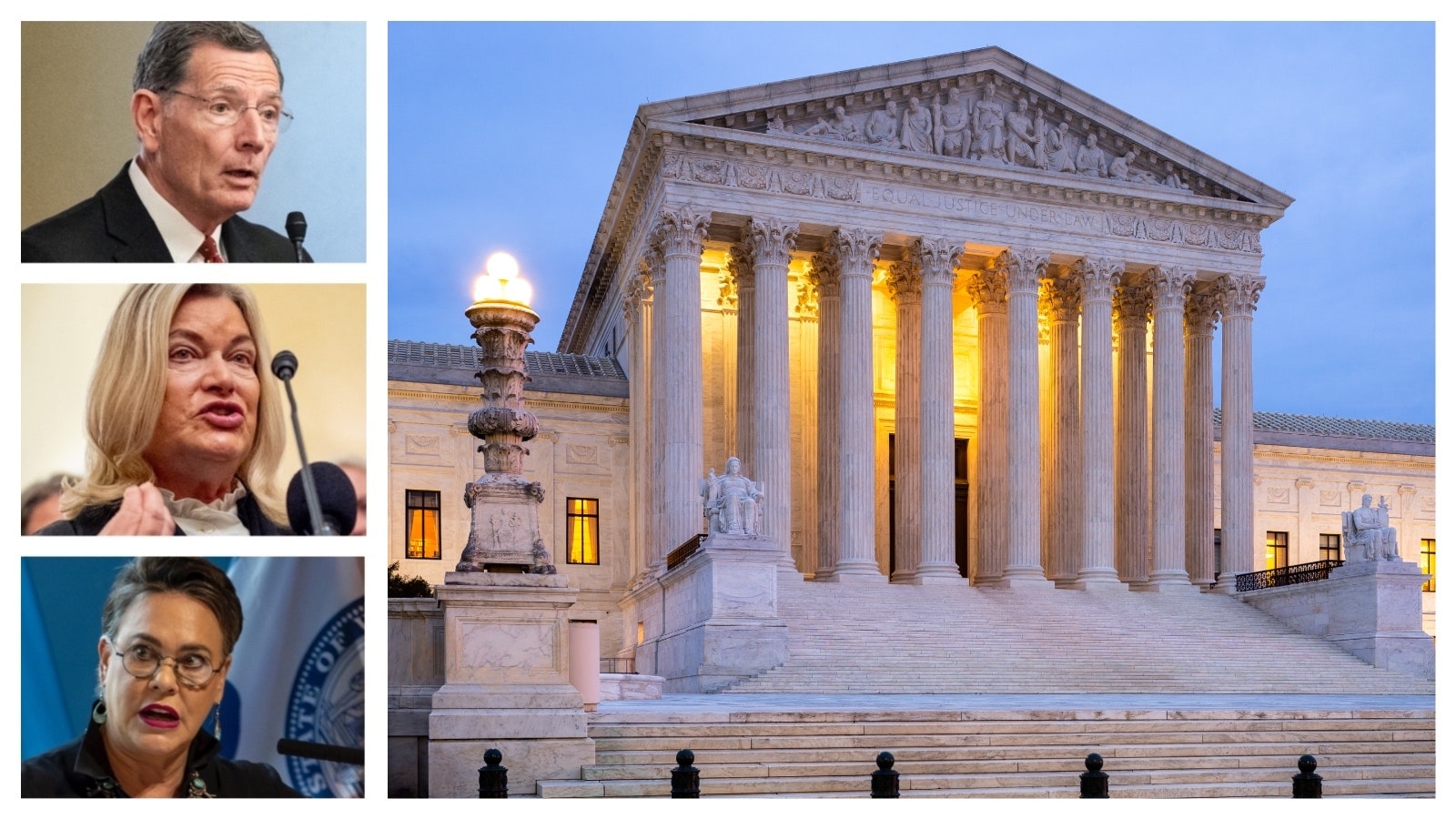***For All Things Wyoming, Sign-Up For Our Daily Newsletter***
By Clair McFarland, Cowboy State Daily
clair@cowboystatedaily.com
As the federal government and global banking giants look to regulate behavior through “social credit scores,” some Wyoming lawmakers are pushing the opposite direction.
“What’s happening right now is pretty scary stuff,” said state Sen. Bo Biteman, R-Ranchester, during a March 11 meeting of the legislative Minerals, Business and Economic Development Committee. “We’re seeing the Communism of the Chinese Communist party, with their social credit score system, creep into the United States.”
Biteman presented a bill to the committee that would have forbidden banks and other lenders in Wyoming from using social credit scores, that is, environmental, social justice and governance performance (ESG) metrics, to turn away corporate clients or individuals.
Biteman was especially concerned with the prospect of banks discriminating against individuals based on behavioral expectations.
Many banks already are denying funding to coal, oil and gas companies.
Though the committee did not adopt Biteman’s bill as one of its interim topics, one of the bill’s 11 co-sponsors, Senate Majority Floor Leader Ogden Driskill, R-Devils Tower, said Wyoming will see it again.
“Without a doubt we’ll see it,” Driskill told Cowboy State Daily on Monday. “It’ll either be me or Senator Biteman, or someone else – but it will certainly come back.”
Biteman did not return phone calls requesting additional comment.
‘Something This State Can Do’
The bill was an early attempt at a complicated issue, but it will need some refinement ahead of the January 2023 Wyoming legislative session, said Sen. Brian Boner, R-Douglas, another co-sponsor.
Boner emphasized that the powerful global banks driving the industry into an inner circle of social credit score adherents are not in Wyoming.
“We can’t regulate anything outside the state of Wyoming,” Boner told Cowboy State Daily in June. “The problem is in places like New York, which we have no jurisdiction over.”
Wyoming’s energy sector companies still rely on funding from out-of-state banks. However, Boner said, the state can help the issue by investing directly in fossil fuels.
Driskill said that although the world’s banking giants fall beyond the reach of Wyoming law, some pushback by the state may inspire other states to act as well.
Arizona, New Hampshire, Minnesota, Kansas and Louisiana all are developing anti-ESG legislation.
Driskill and Boner were both concerned that lenders and other economics power players would graduate from edging out fossil fuels to constraining agriculture.
“Certainly the target right now is on the oil and gas industry, which is hugely important to the entire state,” said Boner. “But there’s no way to limit this idea if it gains traction.”
Driskill worried that using social credit scores to exclude people and players from business opportunities could usher in a new caste system.
“It matters incredibly,” said Driskill. “What (they’re) doing is a type of discrimination… It’s one thing to be turned down on the basis of credit on a loan – it’s another to be socially bullied.”
U.S. House Wants Behavioral Data
The U.S. House last year passed House Resolution 1187, a bill that would require publicly traded companies “periodically” to disclose ESG and other behavioral information to the Securities and Exchange Commission, a federal economic regulatory agency.
If the new law clears the U.S. Senate, public companies will be required to keep the federal government apprised of their environment-related risks, their “social and governance” performance, their “expenditures for certain political activities,” their income, workforce management policies, incidents of workforce harassment, cybersecurity, the demographic composition of their boards of directors, and some of their activity in China.
Wyoming’s senior U.S. Senator John Barrasso called the bill “discriminatory.”
“The Biden administration and the Democrats have repeatedly pressured financial institutions and regulators to discriminate against American fossil fuel producers,” wrote Barrasso in a June 23 email to Cowboy State Daily, adding that over-regulation already has “driven critical energy investment and production overseas.”
Barrasso called the bill a “purely partisan” effort that would “make these discriminatory policies the law of the land” and empower “unelected financial bureaucrats at the SEC to dictate American energy and environmental policy” for decades to come.
Personal ESG Score
Many large corporate players have adopted social credit score, or ESG criteria willingly because their success depends on it, according to theimpactinvestor.com, which in February published a story titled “How to Calculate Your Individual ESG Score.”
How to Calculate Your Individual ESG Score (theimpactinvestor.com)
“Their business and prosperity depend directly on their hiring practices, gender diversity, social and environmental impact, and other ESG factors.”
Numerous companies, some with tremendous economic influence, track social credit scores in the business world.
Bloomberg media conglomerate and financial services company Standard & Poor’s Global are just two of the many frontrunners in the new business-grading system, according to the companies’ own websites.
American financial firm Merrill Lynch in 2018 extended the grade to individuals as well as companies.
“While this may sound like tales out of China, it is a system that is, in fact, being implement(ed) in the U.S. and soon many other nations,” reads the Impact Investor story.
The charities you support, your personal impact on the environment, your efforts toward “sustainability,” all factor into your personal social credit score.
“There will come a time where too low of a score can result in denials for loans or services similar to the way credit scores currently function,” the story continues, adding that companies use ESG scores “to monitor behavior,” and people with good scores “may notice lucrative offers (and) easier loan terms.”
The Coal Killing
Large companies such as banks can’t maintain a high ESG score in many cases unless they impose the same criteria on their clients. For example, a bank can’t boast a small carbon footprint if its clients are associated with carbon emissions.
That’s where the industries that have built Wyoming’s schools and most of its roads land on the outside of the banking industry’s broadening environmental criteria.
Deutsch Bank plans to end business with coal companies by 2025 and is limiting all business activities in the oil and gas sector in the meantime.


BNP Paribas plans to stop all funding for thermal coal globally by 2040, and by 2017 had already halted all funding for new coal-fired power plants. Conversely, the bank more than doubled its green-energy investments between 2015 and 2018.
Swiss banking giant UBS refuses financing to all utilities relying on coal for more than 20% of their total energy.
Chinese Tracking
In China, multiple databases track government loyalty and behavioral performance for a variety of purposes, said Amos Toh, senior researcher for Human Rights Watch, which tracks human rights violations globally. Toh said there’s no single ubiquitous database assigning a single score to each person. There are, however, subject-specific databases maintaining blacklists of people “who don’t comply with court judgements” and may not be able to do certain things, such as buy train tickets.
“It’s far more complicated landscape of scoring than what’s been projected or popularly understood,” Toh added.
***For All Things Wyoming, Sign-Up For Our Daily Newsletter***





